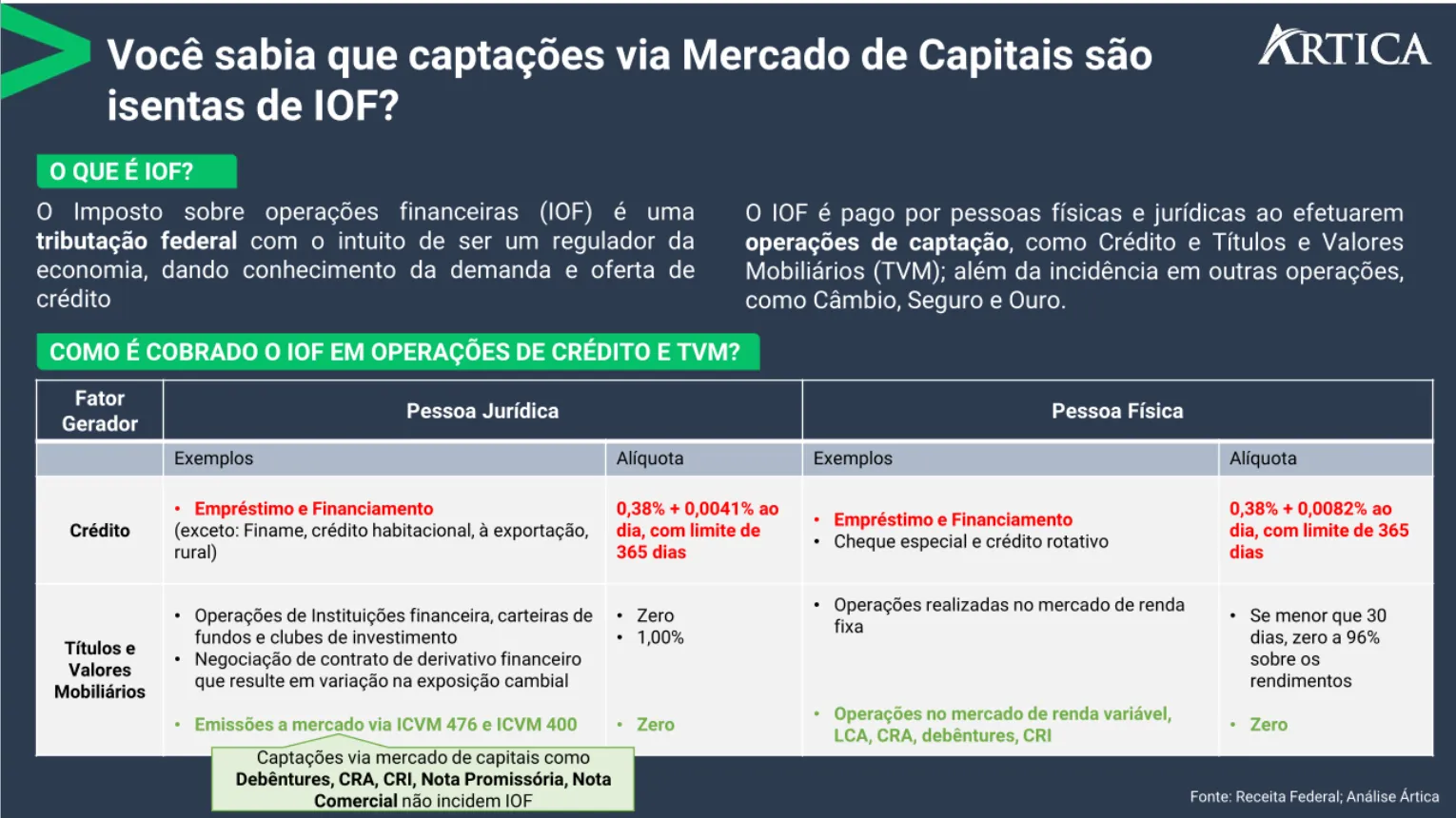Cost is a key consideration for companies seeking financing through credit. Understanding the tax burden on their financing options can provide comparative clarity when making decisions. For example, what is the incidence of the Financial Transactions Tax (IOF) between a company's different funding options?
When a company obtains a loan through direct credit lines from banks, the triggering factor requires the levy of the IOF (Working Capital Tax). Credit lines issued in the Capital Markets (Debentures, Promissory and Commercial Notes, CRIs, and CRAs) are exempt from this tax. This tax exemption can be seen as a benefit to the entrepreneur, reducing their borrowing costs from the perspective of the total cost of the operation (known as the "all-in" approach).
On the other hand, the investor can also take advantage of the difference in costs: by making this benefit clear to the entrepreneur when comparing costs between the two lines, increasing their own interest (spread) within limits of the comparable cost of IOF for the issuer's traditional lines.
It is important for business owners to be aware of not only this tax, but also others and the entire cost structure that make up the "all-in" rate before making any credit decision.






